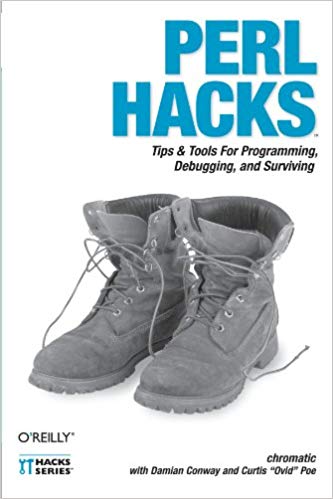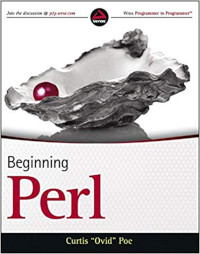Defund The Police?
The phrase “Defund the Police” has flowed across the US like a tidal wave, wrecking all conversations in its path. In the wake of the murder of George Floyd, public anger has reached a point where it’s tearing the US apart. While it would be too simplistic to claim that police brutality is primary driver beyond the discontent in America today, it cannot be ignored. However, “defund the police” has to be one of the most idiotic rallying cries people have rallied behind.

This is largely because defunding the police isn’t what the protests are trying to accomplish . Instead, the movement is about allowing police to be police, dealing with crime, and not having SWAT teams serving eviction notices . So if a homeless guy urinates on a sidewalk, trained social workers can evaluate the person, determine if there’s an actual threat, and assist them in getting help, along with gaining access to appropriate services.
Or just send out men with guns who receive little training in social issues and who will toss the homeless person in jail. I’m not sure how that helps anyone. Urinating in public puts you at risk of a year in jail (two in Ohio) and being placed on the sex offenders registry . Is this a proportionate response? Is destroying someone’s life a healthy response when the alternative is to offer to help the person get back on their feet?
But instead of a slogan such as “let police be police” (in my reading of police forums online, many police support this), many are calling for defunding the police, which those on the other side disagree with because they think it means “eliminate the police,” despite many people trying to clarify the meaning. As anyone in marketing can tell you, if you have to explain what you meant over and over again, then clearly what you said communicates something different from what you meant.
But what‘s the alternative? All but the most authoritarian amongst us admit that there is a problem; it’s the solution we disagree on. Is there a better way?
I’ve been reading through the blog of Donald DuPay , a former Portland police officer. In particular, he wrote Bad Training and a Culture of Lying Continue to Haunt PPB . While much of the language is strong (for example, the “n” word is sometimes used, but in a clear context), if his account is true, he lays out a strong case that there are serious issues with policing. In my reading of police forums, I can only attest to this. What DuPay does, however, is interesting. In particular, he cites the 14th Amendment of the US Constitution , of which Section 1 reads, in part:
[No state shall] deny to any person within its jurisdiction the equal protection of the laws.
Internal Affairs
What is “equal protection”? As DuPay argues:
It does not state for instance, that electricians may have their own private justice system. It does not state that plumbers may have their own justice system. And it does not state that the police can have their own private justice system either, and Internal Affairs is a private justice system for the police, which make it unconstitutional.
DuPay cites many instances of Internal Affairs (IA) investigating criminal behavior of police officers and giving them a slap on the wrist. Or at the very least, giving them punishments far less severe than what the public would face, but still allowing the offending officers to keep their jobs. Officer DuPay cites instances of officers being investigated by IA and being allowed to keep their jobs, despite committing theft or drunk driving, and further claims that:
Over 80 percent of cases that go before IA are whitewashed away and swept under the proverbial rug, with officers either not being charged or given flimsy disciplinary actions for serious infractions involving police misconduct.
And what would the alternative be? Simple: let the police go through the same justice system anyone else has to go through. If they’re found not guilty, let their union or jurisdiction pay for their defense. If they’re found guilty, they pay for their own defense and they suffer the same penalties non-officers would face, with the possibility of greater penalties if they’re found to violate Section 242 of Title 18 which
makes it a crime for a person acting under color of any law to willfully deprive a person of a right or privilege protected by the Constitution or laws of the United States.
Of course, there are problems with this. Sometimes a police officer might engage in illegal activity as part of undercover work . For example, a police officer might receive stolen goods and later fence them in order to break apart a criminal organization. The buying and selling of drugs is another example: if you can’t show the criminals have willingly engaged in the activity (assuming you are not engaged in entrapment ), then it can be very hard to secure a conviction.
Or maybe the case against the officer requires exposing a confidential informant whose life may then be jeopardized? Again, this one is difficult because when laws are being broken, questions of right and wrong can become murky. However, Human Rights Watch has researched IA divisions and found :
Internal affairs divisions must be central to any examination of how police departments deal with abusive behavior by officers. Therefore, it is alarming that no outside review, including our own, has found the operations of internal affairs divisions satisfactory. In each city we examined, internal affairs units too often conducted substandard investigations, sustained few allegations of excessive force, and failed to identify and punish officers against whom repeated complaints had been filed. Rather, they, in practice, often shielded officers who committed human rights violations from exposure and guaranteed them immunity from disciplinary sanctions or criminal prosecution.
And honestly, this is probably a kindness to many IA officers. Typically they don’t spend their entire career in IA. Instead, they were once regular police officers and they’re now called on to investigate their friends and colleagues. The conflict of interest is clear and it must be excruciating. Just consider the well-known problem of steroid abuse by police . They have a very dangerous job and if they are afraid to to subdue a violent suspect, they may do what many police officers are doing: use steroids and hit the gym. And you, as an IA officer, formerly a beat cop, may have tremendous sympathy for them. And you also know you won’t be an IA officer forever and will be working with other police officers again. For many, this can be an impossible situation.
What I find appealing about this solution is that the IA officers don’t lose their jobs: they simply revert to be regular police officers. Further, it leverages existing systems rather than requiring the creation of new ones. Additional safeguards will need to be in place to account for the unusual nature of police work, but why should an officer who passed out drunk, on duty, in their car, get to keep their job, much less escape the criminal sanction everyone else would face ?
I “get” the motivation behind “Defund the Police.” More than that, I completely support it. But there comes a moment when we need to distinguish behind what we should do and what we can do. Maybe getting rid of Internal Affairs and having the police face the same justice system as everyone else is an effective compromise. It won’t fix the problems, but it could be a start.


